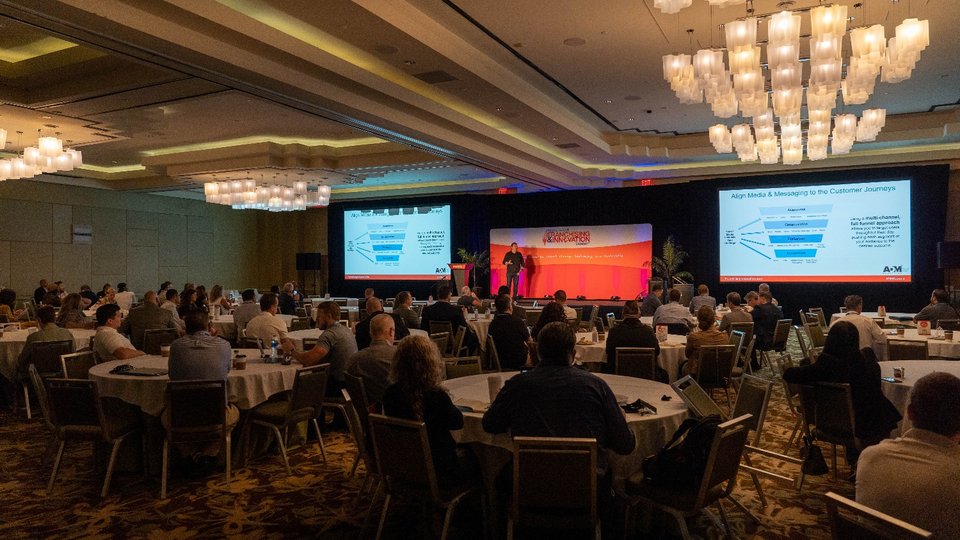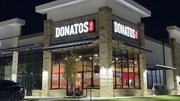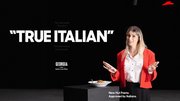Restaurant Franchising & Innovation Summit
Restaurant leaders share insight on top challenges, how to succeed
A panel talk at Networld Media Group's Restaurant Franchising and Innovation Summit focused on restaurant leadership development and experts shared insight on everything from direct marketing to food safety and company culture.

August 27, 2021 by Mandy Wolf Detwiler — Editor, Networld Media Group
When it comes to restaurant success, leadership can make or break a concept. That's because leadership is involved in every aspect of the business, from direct marketing to food safety as well as unexpected challenges such as COVID-19.
How to lead and succeed was the focus of a panel session at the Restaurant Franchising and Innovation Summit, hosted by Networld Media Group and held in Atlanta, Georgia. The event is one of several industry summits run by Networld Media Group. The media company's Fast Casual Executive Summit will take place Oct. 3-5 in Charlotte, North Carolina and a virtual event, #QSRNext, will take place Nov. 9.
The panel included Stephen Farr-Jones, president of ADM Marketing, Laurie Schalow, chief corporate affairs and food safety officer and Kerry Bridges, vice president of food safety both with Chipotle Mexican Grill; Mindy Armstrong, director of menu strategy and product innovation, at Buffalo Wild Wings and Cheikh Mboup, president and COO of Edible Brands. Each panelist focused on a specific leadership challenge.
Linking hidden data to drive more guest visits
In kicking off his talk Farr-Jones initiated discussion about the need to link hidden data to drive guest visits.
"One of the things we've always found interesting in the restaurant industry is that people don't tend to think about the actual importance of direct marketing and one-to-one conversations," Farr-Jones said. "We do it all the time — we send out direct mail, email, whatever we do, but we don't go back to the basics."
Those basics, he said, are simple: it turns out the success of direct marketing rests on the targeting. "Who is it you're speaking to and who is it you're actively choosing not to spend your money on?" Farr-Jones said. "There's a difference in guest values. It doesn't mean that the offer or the creative or the media channel aren't important. They're vitally important. It all works together. But targeting is what drives the success the most."
And if targeting drive success, what drives the success measure is new and incremental revenue?
"If you're going to do targeting," he asked, "where are you going to find the data? What data is it that helps you figure out what customer to speak to and which one to actively avoid?"
For example, if two tables are filled and one spends $15 and another spends $120, which one would you prefer to target? Who's the return customer?
"Among our customer groups, they're not linking the data that's already available to them, and that data can hide literally anywhere," Farr-Jones said. "If it isn't available to you, what do you do with your POS data?"
He recommends cross checking to see if loyalty rewards members are placing online orders.
"They may also be lying around in your third-party delivery data or your first-party delivery data," Farr-Jones said.
Advancing food safety through transparency, collaboration
Schalow and Bridges then spoke on the topic of food safety which has been a critical issue during the 18 months of COVID-19.
"It's no secret that Chipotle had some issues back in 2015 (and) 2016 with E.coli and the norovirus," said Schalow. "Being transparent and being collaborative can really help with the culture (and) with the food safety initiatives that you're working on within your organization."
Transparency is a demand from employees, shareholders and customers alike, said the leaders.
"We collect a lot of food safety data, whether that's coming from our restaurants, looking at our third-party food-safety audits or looking at health department data, or looking at data coming from the supply chain and food safety compliance there, often foreign material or alleged food-illness complaints that come through," Bridges said. "We're looking at all of that data and building some very robust metrics around that."
Those metrics are presented to the Chipotle executive leadership team, to the board of directors and to the food-safety advisory council, but also with operations and marketing. "Everybody has access to our food safety goals and how they tie back to these metrics," Bridges said. "It's really important that we're transparent around this data" to ensure everyone is on the same page for customers' demand for a quality, safe product.
"With what's going on with COVID, I think that's a very relevant conversation," Bridges added. "That's something our customers absolutely have a right to know."
Chipotle has a dedicated Web site devoted to its food safety practices.
"From a brand perspective, looking back at 2015 and 2016, I think that Chipotle wasn't as forthcoming with the rules of crisis," Schalow said. "What happened, what are you doing about it and what are you doing to make sure it never happens again? I know that we've really learned to be much more transparent and to make sure that we are communicating with consumers. COVID gave us that great opportunity to do that. In the past, we shied away from sharing food safety because we thought (customers) will bring up the past and we didn't want to do that."
Bridges said it's important to note that "you can't do food safety the same way last year that you're going to do food safety this year. The science changes, the risk changes — a lot can change, so it's really important that as you're looking at those metrics that they're evolving with you year after year."
Changing food culture from the inside out
When it comes to leadership on food culture, another relevant challenge brands face, Armstrong said ideas matter in the restaurant industry as it fuels brands.
"But the hard work is "running them through all the brand filters and bringing them to life," she said, "putting them in front of your guests (and) making sure they're going to deliver on what you think they're going to do — what they're intended to do. That's where the hard work begins, and that's where culture begins."
The key aspect with food culture is relevancy, according to the Buffalo Wild Wings leader.
"For us a brand, what's important to us is relevance," Armstrong said. "Not only is that important today, but we have to be relevant in the future. If we can be constantly thinking about that and reframe our approach to maintain our relevance and stay on the consideration side of our customers, that is what's going to fuel our culture. That's going to fuel our business. That's what's going to keep us looking toward the future."
Brands can't avoid innovation, she added
"Innovate or die," Armstrong said. "We talk about that a lot. … We have to keep innovating to stay relevant."
Brand evolution: The intersection of innovation and legacy
Mboup then brought up the challenge of brand evolution and staying relevant in an ever-changing market. Legacy must be married to innovation, he said.
"There's no gap of technology out there," he said. "At least once a day we get some kind of alert, whether it's via e-mail or somebody calls us or we see them, and they attempt to share with us a company that they're involved in. Most of the time, they don't even get a 'no, thank you.' But really if you look into what they have to offer, it's absolutely a tool that you may or may not need at that special time. The gap is not a lack of technology. … The gap in what will prevent some company from reaching some sort of innovation is truly the lack of coercion that exists in that leader's mind at that specific time."
The COVID-19 pandemic prompted brand collaboration and brought e-commerce like DoorDash, Air BnB and UberEats to come to the forefront of brands' thinking, and although the collaborative idea was born in the early 2000s, the pandemic highlighted collaborate e-commerce need.
Why was it not embraced as well before the pandemic? The demand of legacy and innovation needed to be crossed, and the pandemic forced its hand.
"We all found ourselves in a position where if you were selling a platform that sold or created some level of e-commerce … you didn't have to convince most retailers that they needed you," Mboup said. "They were most likely your best friend."
To identify when a brand has hit the intersection of legacy and innovation, Mboup said it's all about current status.
"You can identify when you actually reach a point when the platform you're using is running extremely smooth and leadership understands a brand's history and knowing what mistakes have been made," he said, adding and "using them as turning points for success."
About Mandy Wolf Detwiler
Mandy Wolf Detwiler is the managing editor at Networld Media Group and the site editor for PizzaMarketplace.com and QSRweb.com. She has more than 20 years’ experience covering food, people and places.
An award-winning print journalist, Mandy brings more than 20 years’ experience to Networld Media Group. She has spent nearly two decades covering the pizza industry, from independent pizzerias to multi-unit chains and every size business in between. Mandy has been featured on the Food Network and has won numerous awards for her coverage of the restaurant industry. She has an insatiable appetite for learning, and can tell you where to find the best slices in the country after spending 15 years traveling and eating pizza for a living.
 ChatGPT
ChatGPT Grok
Grok Perplexity
Perplexity Claude
Claude








